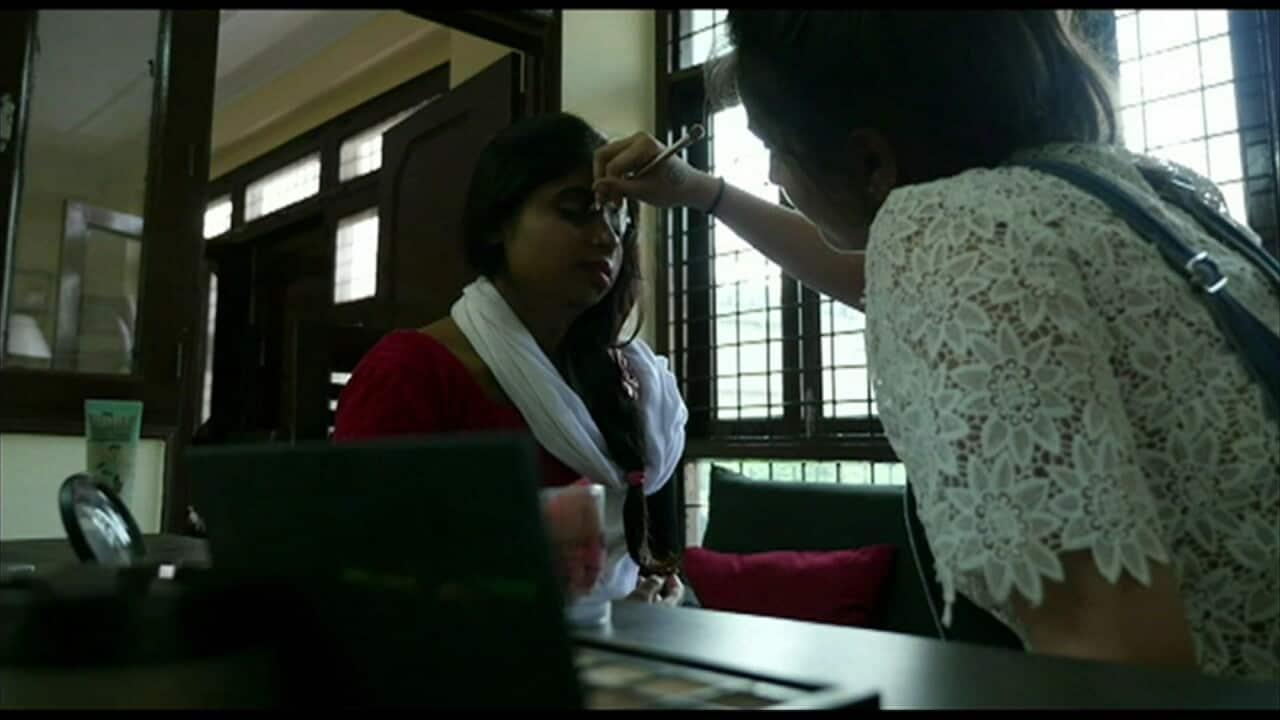Reena Pal was on the back of her uncle’s motorbike, the wind whipping through her hair, heading to university to sit an exam. This village girl from the Indian state of Uttar Pradesh was the first person in her family to get an education. A new, prosperous India beckoned for Reena and her family.
This should be an inspiring rags-to-riches story – a morality tale about education leading to a better life. Instead it’s a tale of immorality, of unimaginable cruelty.
On the day Reena, then 18, was to sit her second year university exams, a man who had been stalking her for years followed her to school. He was much older and obsessed. With his friend at the wheel, they cruised up beside Reena and her uncle and threw acid at her.
“I was screaming so loudly, I’ve never screamed like that before and I wouldn’t be able to do so again even if I wanted to. When I looked at myself, my clothes were torn and steam was coming off my skin,” she says. It took an ambulance seven hours to reach Reena and she then spent 8 months in hospital. There were many complications and many times she thought she would die. The acid had eaten her skin and stolen her future. She went blind in one eye.
It took an ambulance seven hours to reach Reena and she then spent 8 months in hospital. There were many complications and many times she thought she would die. The acid had eaten her skin and stolen her future. She went blind in one eye.

A still of Rena (SBS) Source: SBS
“Men sometimes feel ‘If I ruin her appearance no one else will want her either. Let’s teach her a lesson’,” says 23-year-old Ria Sharma, founder of the non-government organisation, Make Love Not Scars.
The organisation recently opened a centre in Delhi with funding from Italian donors. Ms Sharma says the centre is a “one-stop shop” for acid attack survivors like Reena Pal, a place where they can receive legal, financial and medical help. The centre also raises money for women who want to study or pursue a vocation.
Like the women she supports, Ms Sharma’s life has gone in a direction she would never have imagined. A few years ago she was a fashion student studying in the United Kingdom. She saw a documentary about acid attacks and decided she wanted to make her own film. She returned home to India and was “absolutely devastated” by what she saw in the burns unit of a government hospital.
The UK-based Acid Survivors Trust International believes there are about 1000 acid attacks in India every year, many of which go unreported.
“There were burnt bodies on the floors, there were literally 60 patients and 30 beds.”
A doctor at the hospital told Ms Sharma that 90 per cent of the patients would die of infection. “That’s when I though to myself ‘this is so avoidable. Why aren’t we doing something about this?’”
That experience inspired Ms Sharma to act and Make Love Not Scars was born. The organisation is helping about 50 women.
“It is very important to bring these women together under one roof to show them they’re not alone, to be able to give them that space where they can regain their confidence together,” she says. But India’s “insane obsession with appearances” makes it difficult for the survivors. “From that kind of obsession with appearances stems this stigma towards disfigurement and because of this stigma that surrounds disfigurement these women are naturally isolated and alienated from society and kept behind closed doors,” she says.
But India’s “insane obsession with appearances” makes it difficult for the survivors. “From that kind of obsession with appearances stems this stigma towards disfigurement and because of this stigma that surrounds disfigurement these women are naturally isolated and alienated from society and kept behind closed doors,” she says.

Still image of Ria Sharma (SBS) Source: SBS
The UK-based Acid Survivors Trust International believes there are about 1000 acid attacks in India every year, many of which go unreported.
related reading

Acid attack survivor new face of Indian fashion brand
Concentrated acid is used in urban India to clean sinks and toilets and it’s also used in industries like jewellery making. A litre of acid costs less than a dollar.
In 2013 the Indian Supreme Court ordered Federal and state governments to regulate the sale of acid to make it more difficult to buy.
The court said it should only be sold to people who provided identification and a reason for the purchase. Shopkeepers are supposed to keep a register of sales. But three years after the Supreme Court ruling, it remains easy to buy, no questions asked.
The Supreme Court also ruled that state governments should provide funds immediately after an acid attack to help with the victim’s preliminary medical care. Those funds are often not forthcoming.
Reena Pal was attacked three years ago, before Make Love Not Scars was established. Her family went into debt to pay her medical bills. “I wanted to kill myself. My family depended on me because I am the only educated one. I’ve shattered them,” she says.
Reena’s attacker spent 11 months in jail awaiting trial, but is now out on bail. “Two days ago he called me and told me to drop the case or he would kill me. I said, ‘How can you kill me? I’m already dead.’ But I told him I wouldn’t drop the case.”
Make Love Not Scars has raised money for Reena to return to university where she’s doing an arts degree. Her confidence has also been boosted meeting other acid attack survivors at the centre.
“When I saw that many girls had been attacked like me, I realised I wasn’t the only one. I’ve been luckier than some. There are girls who don’t have any eyes. They have given me courage,” she says.









